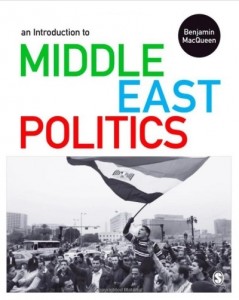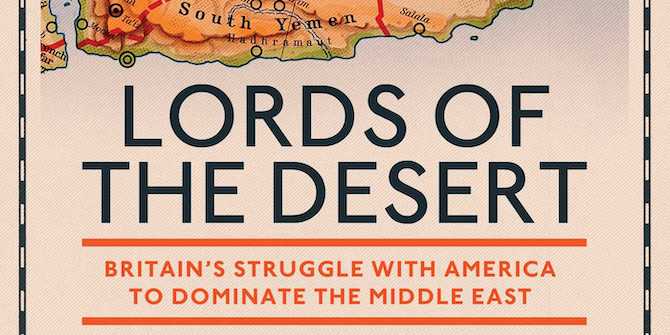Book Review of An Introduction to Middle East Politics by Benjamin MacQueen
by Silvia Colombo

Setting out to write an introduction to Middle East Politics in 2013, in the middle of possibly the greatest transformative processes ever seen by this region since the colonial period is no easy endeavour. Among the high number of scholars who have undertaken this task, Benjanin MacQueen, Senior Lecturer in the School of Political and Social Inquiry at Monash University, has masterfully accomplished it by producing a book that offers an in-depth analysis of some of the most complex and debated features of the Middle East. The outcome is a book that is not just an introduction to Middle East politics – as the title aptly mentions – but also a tool to dig into issue areas that are often treated as discrete chapters in the historical development of this fascinating region from the Ottoman Empire onwards. Among these issues, the book dwells on oil politics in the region and its impact on political and socio-economic development as well as on the changing notion of political violence in the Middle East.
The book by MacQueen is a dynamic text that will accompany its readers – both students and practitioners – in a journey throughout the political development of the region by highlighting the changes and continuities that have always characterised this part of the world. The very structure of the book and the breadth of the modern political history of the region covered in it, starting with the Ottoman Empire and its legacy up to the Syrian civil conflict and its impact on the regional balance of power, lend support to the claim that it is not possible to understand where the region is heading to in the aftermath of the popular uprisings of 2011 without taking into account the structural constraints and opportunities deriving from the previous decades of socio-economic and political history. The whole discussion of the Arab uprisings and the prospects for democratisation in the region is framed in the book within the broader discussion of the political processes that have unfolded and that allow us to understand the root causes and the catalysts of this fundamental turning point in the history of the region. These events did not emerge from a vacuum. Indeed, democracy and social justice had been part of the political demands voiced from the region for quite some time and a number of attempts had been made to change the course of Middle East history despite the seemingly impenetrable authoritarian resilience of the regimes in power. One needs only have a look at the events during and after October 1988 in Algeria to appreciate how rioting over corruption, unemployment, inequalities and general government mismanagement could push an entrenched authoritarian regime to the brink of collapse and also result in a decade-long civil war. A critical message of the book is that demands for democracy, the Rule of Law and social justice had been there for quite a long time, but they needed to be activated by a new-found agency among certain sectors of the population against the backdrop of the failure of externally-imposed attempts at democratisation.
The interplay of structure and agency in defining the most recent phase of Middle East politics emerges forcefully from the pages of this book and it today more than relevant in providing a sound analytical tool to assess the ongoing transitions in countries such as Egypt, Tunisia, Yemen and Libya. At the same time, the book offers some essential insights to scholar and policy-makers alike who grapple with the question of why some regimes have been able to withstand the turmoil and seem to be sailing through calm waters. Looking at Algeria and the countries of the Arab Gulf and taking into account the extent to which some of the features of unsustainability from which the Arab uprisings originated in late 2010 can also be spotted in these countries already point us to what may become hot spots in the region’s political development in the near future.
All these topics and many more are developed in the book in a comprehensive manner and an accessible language that is likely to attract an increasing number of disciples to the study of Middle East politics by offering them the tools – such as useful timeline, a companion website and further reading suggestions – to make sense of an ever changing region.
 Silvia Colombo is a PhD candidate in comparative politics at the Italian Institute for Human Sciences (SUM)/Università La Normale, Florence. She is also a research fellow in the Mediterranean and Middle East Programme of the Rome-based International Affairs Institute (IAI). She is currently visiting researcher at the LSE Middle East Centre.
Silvia Colombo is a PhD candidate in comparative politics at the Italian Institute for Human Sciences (SUM)/Università La Normale, Florence. She is also a research fellow in the Mediterranean and Middle East Programme of the Rome-based International Affairs Institute (IAI). She is currently visiting researcher at the LSE Middle East Centre.






